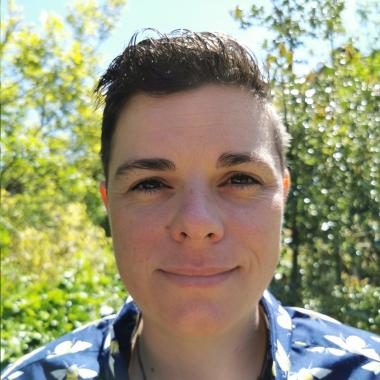Course Overview
Course summary
Our degree courses with foundation year offer the opportunity to prepare you for advanced study before you progress onto a full honours degree at the University of Westminster. Whether you do not feel ready for degree-level study, don’t have the right qualifications, want to change your subject specialism or return to study after an absence from education, we aim to encourage a broad range of students to undertake our foundation year in order to progress onto their full honours degree with us.
The foundation year is designed to give you the opportunity to explore new ideas, opening up new perspectives on the key debates within your chosen field. During the foundation year, you will explore a range of creative disciplines and get a chance to develop in your chosen field, benefiting from workshops in our high-end facilities and working with leading academics who will encourage you to become a confident and creative thinker. Core modules accelerate your academic and professional development and you will also take modules within your chosen field, giving you the chance to develop a cross-disciplinary perspective on your course.
On successful completion of the foundation year, you will be able to move on to study for the Human Nutrition BSc Honours over a further three years study.
On this course, you'll examine how nutrients and eating patterns impact health and well-being, and the role of diet in both health and disease.
Public and media interest in what we eat has never been greater. Emerging as one of the most popular sciences, Human Nutrition integrates knowledge from diverse areas of science to present a unified view of this dynamic discipline and its applications.
We have well-equipped labs in all bioscience disciplines, including a suite of biochemical test facilities for nutritional analysis, whole-body metabolism and determination of body composition.
A lively research culture informs our teaching, and is reflected in our curricula specialising in both Global Public Health Nutrition and Sport and Exercise Nutrition. Our current research includes, but not limited to, local/global food security issues encountered by families, lifestyle interventions for metabolic health related diseases, and the ability to change nutritional behaviour through the use of technology.
In Years 2 and 3, students on the degree can choose to follow a theme focusing on Human Nutrition or on Human Nutrition with Exercise Science, which focuses on the role that exercise and nutrition play in all aspects of human health and disease.
The course presents you with an understanding of the molecular and physiological basis of the relationship between nutrition and human health and performance. You will study modules which cover the relevant aspects of human nutrition, physiology, public health nutrition, diet in health and disease, biochemistry, psychology, health and exercise practices.
Top reasons to study with us
- Make the most of outstanding facilities – we have well-equipped labs in all bioscience disciplines, including a suite of biochemical test facilities for nutritional analysis, whole-body metabolism and determination of body composition
- Boost your career – this course is accredited by the Association for Nutrition (AfN) and graduates from this course are eligible to join the Register as an Associate Nutritionist
- Learn from expert speakers - expert speakers deliver research seminars and ‘academic conversations’, introducing students on the course to cutting-edge research and scientific developments
Course structure
The learning and teaching of the course relies on a mixture of face-to-face teaching and tutorial sessions, lab-based practicals, research seminars, and independent study, with classroom-based activities supported by online study material.
Assessment methods include research articles, group projects, oral presentations, in-class tests, practical assessments, report writing and exams.
The following subjects are indicative of what you will study on this course.
The foundation year is available for applicants who do not meet the entry requirements for the courses offered in nutrition. It is a well-established route of access into higher education for mature students (those aged over 21) without formal qualifications and is also suitable if you have completed A-Levels in non-science subjects.
Subjects of study include:
- Biology
- Bioscience in Action
- Chemistry
- Critical Thinking for Academic and Professional Development
- Introduction to Academic Practice
- Introduction to Physiology
Credit Level 3
Subjects of study include:
- Cell Biology
- Human Physiology
- Metabolism of Nutrition and Exercise
- Principles of Human Nutrition
- Professional Development in Science (PRoDS)
- Psychology and Sociology of Health and Well-being
Credit Level 4
Subjects of study include:
- Applied Nutrition
- Developing the Nutritionist and Exercise Scientist
- Diet in Health and Disease
- Exercise Physiology in Action
- Metabolic Biochemistry
- Research Methods
Credit Level 5
Professional experience or study abroad year
Between Years 2 and 3, you’ll have the opportunity to undertake a professional placement year in industry. Completing the placement year will lead to the final award Bachelor of Science with Honours – Human Nutrition with Professional Experience.
Alternatively, you can undertake a period of study abroad at one of Westminster’s partner institutions. Successful completion will lead to the final award Bachelor of Science with Honours – Human Nutrition with International Experience.
Find out more about the costs involved in taking a study abroad or placement year.
Subjects of study include:
- Applied Medical Sciences
- Applied Nutrition and Performance
- Applied Public Health Nutrition
- Final Year Poject in Life Sciences
- Gene Editing and Genomics
- Nutrition in Emergencies
- Nutrition in Practice
- Psychology of Sport, Exercise and Nutrition
Credit Level 6
Professional accreditation
This course is accredited by the Association for Nutrition (AfN) and graduates from this course are eligible to join the Register as an Associate Nutritionist. The AfN recognises the high standards of training offered on our accredited courses at undergraduate and postgraduate level.
The Associate Nutritionist (ANutr) designation is designed to help you make a rapid transition to full registration, normally after a period of three years, and develop a career in nutritional science.
Studying Human Nutrition with us
For more details on course structure, modules, teaching and assessment Download the programme specification (PDF).
To request an accessible version please email [email protected]
Get your copy of the University of Westminster prospectus and browse the range of courses on offer.
Contact us for general course enquiries:
+44 (0)20 7911 5000 EXT 65511
(Mon–Fri, 10am–4pm BST)
Live chat with us
(Mon–Fri, 10am–4pm BST)
Open days
Join us at an open day online or on campus. Get a feel for student life at the University of Westminster and talk to course leaders and our support teams.
Can't attend? See more open events
More ways to meet us
Careers
Professionally accredited course
The course is accredited by the Association for Nutrition (AfN), designed to assist students in developing a career in the nutrition profession.
A growing industry
Interest in human nutrition has never been greater – this course equips you with the skills needed for a successful career in a growing sector.
Employers around the world
The University’s Careers and Employability Service has built up a network of over 3,000 employers around the world, helping all our students explore and connect with exciting opportunities and careers.
Career development
Our Human Nutrition BSc course is accredited by the Association for Nutrition (AfN). As a graduate of this degree course, you are immediately eligible to join the Register as an Associate Nutritionist – assuming a pass mark is achieved in all professional core modules. This accreditation recognises the high standards of training that the course offers. The Associate Nutritionist (ANutr) designation is designed to assist you in developing a career in nutritional science so that you can make a rapid transition to full registration, normally after a period of three years.
The course also capitalises on the benefits that London as a global city and as a major creative, intellectual and technology hub has to offer for the learning environment and experience of our students.
Graduate employers and job roles
This course will give you the skills and knowledge to establish yourself in a range of careers related to human nutrition, including research, education and policy development.
For example, nutritionists can find work in:
- Charities involved in heart health, diabetes, and obesity
- Consultancy: practitioner giving nutritional guidance to individuals and/or companies
- Development and international public health
- Industry: food science or product development
- Public health within the NHS
- Sport nutrition, health and fitness industry
- Weight management and healthy living initiatives
The course can also form a foundation for further study eg MSc or MPhil/PhD.
International Opportunities
Many of our courses offer international study and work experiences, and the University provides other global opportunities that all students can apply for – so whatever you're studying, you'll have the chance to go abroad.
Opportunities could include:
- Taking part in semester or year-long exchanges at institutions around the world
- Attending an international summer school or field trip
- Developing your CV through volunteering or work placements abroad
International experience broadens horizons, boosts self-confidence, and improves global understanding, alongside being fantastic for your career.
Find out more about our international opportunities, including funding options and where you can go.
Course Leaders
Steve Davis
Course Leader for Foundation in Life Sciences
Steve is the Course Leader for Foundation in Life Sciences, which includes the Foundation years of the BSc (hons) courses: Biochemistry, Biological Sciences, Biomedical Sciences, Human Nutrition, Pharmacology and Physiology. A registered practitioner in a CAM therapy, and Fellow of the Higher Education Academy, Steve has wide experience in developing education and training programmes for CAM student practitioners.
Dr Bradley Elliott
Senior Lecturer in Physiology
Bradley studied for a Bachelor of Science (Honours) in the Department of Sport and Exercise Sciences at the University of Auckland, New Zealand before completing a Master's of Science (Experimental Medicine) at Université Laval, Canada. He completed his doctorate on human and applied physiology here at the University of Westminster, examining myostatin regulation and muscle atrophy mechanisms during acute hypoxic insult.
Dr Jane Naufahu
Senior Lecturer
Jane joined the University in 2010. She is a Senior Lecturer in Human Nutrition and Performance and course leader for Human Nutrition BSc. Her research interests include the effects of diet and exercise on metabolic health.
She is an Association for Nutrition Registered Nutritionist with the Sports and Exercise specialism and is also a Fellow of the Higher Education Academy.
Course Team
- Dr Jane Naufahu - Senior Lecturer
- Dr Ihab Tewfik - Senior Lecturer
- Dr Claire Robertson - Senior Lecturer
- Rumy Begum - Senior Lecturer
- Dr Teddy Seyoum - Senior Lecturer
- Jessica Swann - Staff
- Dr Regina Keith - Senior Lecturer, Course Leader MSc IPHN
- Dr Saki Raheem - Reader
- Dr Ximena Montano Hernandez - Lecturer
Why study this course?
Studying with us opens doors
Our students go on to diverse careers, including health and public health services, dietetics, professional nutritional bodies, product development, cancer research, nutritional advice, and the health and fitness industry.
Digital resources and a supportive environment
We are committed to delivering a blended learning programme of online and face-to-face teaching. Digital resources and a supportive learning environment mean all our students can achieve their best, whatever the circumstances.
Develop skills and build confidence
Take part in our wide-ranging extra-curricular activities, such as our 'Students as co-creators' initiative, our student-run 'Stay Active this Summer' health programme, or our student-led Westminster
Entry Requirements
- A levels – DDE (64 UCAS Tariff points)
- T levels – 64 UCAS Tariff points
- International Baccalaureate – 64 UCAS Tariff points from all components of the Diploma Programme. International Baccalaureate Career-related Programme will be considered on a case-by-case basis
- BTEC Extended Diploma – MPP
- BTEC Diploma – MM
- Access – 64 UCAS Tariff points from the Access course
In addition to one of the above, you should have:
- GCSE English Language grade 4/C – IB grade 4 Higher level, GCSE Maths grade 4/C – IB grade 4
If your first language is not English, you will need an IELTS of 6.5 overall, with no less than 6.0 in each component.
We also welcome applications from students who are taking a combination of qualifications listed above. For further information, please contact Course Enquiries.
Mature entrants without formal qualifications will be considered on an individual basis.
View more information about our entry requirements and the application process
- International Baccalaureate – 64 UCAS Tariff points from all components of the Diploma Programme. International Baccalaureate Career-related Programme will be considered on a case-by-case basis. You can refer to the UCAS calculator to determine your point score
- We accept a wide range of international high school level qualifications. Please see information on Country-specific entry requirements
- We work in partnership with Kaplan International College London who provide International Foundation Certificate courses for students who don’t meet our entry requirements. Upon successful completion, you can progress to your chosen degree at the University of Westminster. Find out about a range of university preparation courses that are accepted for entry.
English language requirements
- If your first language is not English, you should have an IELTS score of 6.5 overall, with a score of 6.0 in each component. Please note we accept a wide range of English language qualifications and assessments. Find out more at English language requirements.
- If you don't meet the English language requirements yet, then we offer online and on campus pre-sessional English programmes to help develop your English language skills to the required level before you start your course. Find out more about our pre-sessional English programmes.
More information
- A levels – DDE (64 UCAS Tariff points)
- T levels – 64 UCAS Tariff points
- International Baccalaureate – 64 UCAS Tariff points from all components of the Diploma Programme. International Baccalaureate Career-related Programme will be considered on a case-by-case basis
- BTEC Extended Diploma – MPP
- BTEC Diploma – MM
- Access – 64 UCAS Tariff points from the Access course
In addition to one of the above, you should have:
- GCSE English Language grade 4/C – IB grade 4 Higher level, GCSE Maths grade 4/C – IB grade 4
If your first language is not English, you will need an IELTS of 6.5 overall, with no less than 6.0 in each component.
We also welcome applications from students who are taking a combination of qualifications listed above. For further information, please contact Course Enquiries.
Mature entrants without formal qualifications will be considered on an individual basis.
View more information about our entry requirements and the application process
- International Baccalaureate – 64 UCAS Tariff points from all components of the Diploma Programme. International Baccalaureate Career-related Programme will be considered on a case-by-case basis. You can refer to the UCAS calculator to determine your point score
- We accept a wide range of international high school level qualifications. Please see information on Country-specific entry requirements
- We work in partnership with Kaplan International College London who provide International Foundation Certificate courses for students who don’t meet our entry requirements. Upon successful completion, you can progress to your chosen degree at the University of Westminster. Find out about a range of university preparation courses that are accepted for entry.
English language requirements
- If your first language is not English, you should have an IELTS score of 6.5 overall, with a score of 6.0 in each component. Please note we accept a wide range of English language qualifications and assessments. Find out more at English language requirements.
- If you don't meet the English language requirements yet, then we offer online and on campus pre-sessional English programmes to help develop your English language skills to the required level before you start your course. Find out more about our pre-sessional English programmes.
More information
What our students say

Jolene Trim
Human Nutrition BSc
I started this course as I wanted a better understanding of nutrition and how it affects the body, what I got was much more. The lectures were engaging, the lecturers knew what they were talking about and gave great advice and guidance. The practical sessions in the labs were very engaging. I highly recommend this course and this campus.
Manuela Biffi
Human Nutrition BSc
I really enjoyed my time studying at the University of Westminster. The course is extremely well organised and the learning environment is very open and friendly. The lecturers and guest lecturers are real experts in the field and were very helpful and supportive in so many ways throughout the course. This experience has enabled me to continue my study at a postgraduate level in dietetics.

Dayna Hawthorne
Human Nutrition BSc
The lecturers were really engaging with a lot of opportunities to ask questions. Staff were all friendly and welcoming and went out of their way to make you feel your comments mattered.
Learn new skills
Learn a new language
From Arabic to Spanish, you can learn a new language alongside your degree with our Polylang programme.
Develop your entrepreneurial skills
Our award-winning Westminster Enterprise Network offers industry networking events, workshops, one-to-one business advice and support for your startup projects.
Gain extra qualifications
We provide access to free online courses in Adobe and Microsoft Office applications, as well as thousands of specialist courses on LinkedIn Learning.
Fees and Funding
UK tuition fee: £9,535 (Price per academic year)
Please note that if you defer your place, the first year’s tuition fees will be those of the academic year in which you enrol, which may be higher than the fee shown for this year.
Fees are subject to UK Government Parliamentary procedure.
Find out how we set our tuition fees.
Funding
As well as tuition fee loans, there is a range of funding available to help you fund your studies.
Find out about undergraduate student funding options.
Scholarships
The University is dedicated to supporting ambitious and outstanding students and we offer a variety of scholarships to eligible undergraduate students, which cover all or part of your tuition fees.
Find out if you qualify for one of our scholarships.
Additional costs
See what you may need to pay for separately and what your tuition fees cover.
International tuition fee: £17,000 (Price per academic year)
When you have enrolled with us, your annual tuition fees will remain the same throughout your studies with us. We do not increase International tuition fees.
Please note that if you defer your place, the first year’s tuition fees will be those of the academic year in which you enrol, which may be higher than the fee shown for this year.
Find out how we set our tuition fees.
EU Qualifications Welcome Award Scheme
If you are an international student accepted on an undergraduate programme starting in September 2024 or September 2025 at level 3 (Foundation) or level 4 (first year) on the basis of an eligible EU qualification only, you will be awarded a tuition fee reduction which will align your fee more closely to the one for UK students. For more information, see the EU Qualifications Welcome Award Scheme.
International student funding
Find out about funding for international students.
Additional costs
See what you may need to pay for separately and what your tuition fees cover.
UK tuition fee: £9,535 (Price per academic year)
Please note that if you defer your place, the first year’s tuition fees will be those of the academic year in which you enrol, which may be higher than the fee shown for this year.
Fees are subject to UK Government Parliamentary procedure.
Find out how we set our tuition fees.
Funding
As well as tuition fee loans, there is a range of funding available to help you fund your studies.
Find out about undergraduate student funding options.
Scholarships
The University is dedicated to supporting ambitious and outstanding students and we offer a variety of scholarships to eligible undergraduate students, which cover all or part of your tuition fees.
Find out if you qualify for one of our scholarships.
Additional costs
See what you may need to pay for separately and what your tuition fees cover.
International tuition fee: £17,000 (Price per academic year)
When you have enrolled with us, your annual tuition fees will remain the same throughout your studies with us. We do not increase International tuition fees.
Please note that if you defer your place, the first year’s tuition fees will be those of the academic year in which you enrol, which may be higher than the fee shown for this year.
Find out how we set our tuition fees.
EU Qualifications Welcome Award Scheme
If you are an international student accepted on an undergraduate programme starting in September 2024 or September 2025 at level 3 (Foundation) or level 4 (first year) on the basis of an eligible EU qualification only, you will be awarded a tuition fee reduction which will align your fee more closely to the one for UK students. For more information, see the EU Qualifications Welcome Award Scheme.
International student funding
Find out about funding for international students.
Additional costs
See what you may need to pay for separately and what your tuition fees cover.
Teaching and Assessment
Below you will find how learning time and assessment types are distributed on this course. The graphs below give an indication of what you can expect through approximate percentages, taken either from the experience of previous cohorts, or based on the standard module diet where historic course data is unavailable. Changes to the division of learning time and assessment may be made in response to feedback and in accordance with our terms and conditions.
How you'll be taught
Teaching methods across all our undergraduate courses focus on active student learning through lectures, seminars, workshops, problem-based and blended learning, and where appropriate practical application. Learning typically falls into three broad categories:
- Scheduled hours: examples include lectures, seminars, practical classes, workshops, supervised time in a studio
- Placement: placement hours normally include placement opportunities, but may also include live projects or virtual activity involving employers
- Independent study: non-scheduled time in which students are expected to study independently. This may include preparation for scheduled sessions, follow-up work, wider reading or practice, completion of assessment tasks, or revision
How you'll be assessed
Our undergraduate courses include a wide variety of assessments.
Assessments typically fall into three broad categories:
- Practical: examples include presentations, videos, podcasts, lab work, creating artefacts
- Written exams: end of semester exams
- Coursework: examples include essays, reports, in-class tests, portfolios, dissertation
Data from the academic year 2024/25
Supporting you
Our Student Hub is where you’ll find out about the services and support we offer, helping you get the best out of your time with us.
- Study support – workshops, 1-2-1 support and online resources to help improve your academic and research skills
- Personal tutors – support you in fulfilling your academic and personal potential
- Student advice team – provide specialist advice on a range of issues including funding, benefits and visas
- Extra-curricular activities – volunteering opportunities, sports and fitness activities, student events and more
Course Location
With state-of-the-art science and psychology labs and refurbished computer suites, our Cavendish Campus offers our science and technology students a range of learning spaces that are both dynamic and inspiring.
Located in central London, our Cavendish Campus is just a five-minute walk from Oxford Street and Tottenham Court Road.
For more details, visit our Cavendish Campus page.
Contact us
Call our dedicated team on:
+44 (0)20 7911 5000 ext 65511
Opening hours (GMT): 10am–4pm Monday to Friday
Opening hours (GMT): 10am–4pm Monday to Friday
More information
Your Westminster
Book an open day. Order a prospectus. Sign up for newsletters.





